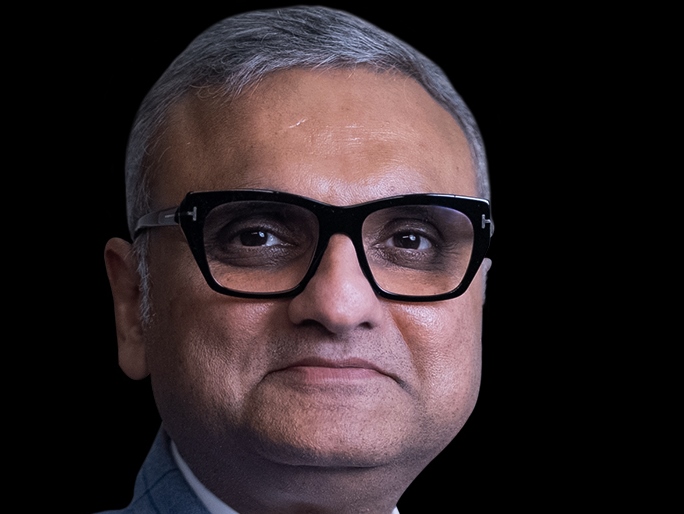2024 has been a pivotal year for the Indian insurance industry, marked by significant reforms and policy changes.2025 will be a key year as it will see further movement in industry and government efforts towards the Insurance for all by 2047 vision Four CEOs of the industry outline their expectations on likely developments in the Indian insurance sector.

Naveen Chandra Jha, MD & CEO, SBI General Insurance
This year marked a significant leap forward for India’s insurance industry, driven by regulatory reforms, technological advancements, and a growing awareness of risk management. We are focused on growing faster than the market leveraging our brand, distribution reach, and basket of well-priced products supported by a robust claims settlement process.
The Insurance Regulatory and Development Authority of India (IRDAI) has been at the forefront of this transformation, introducing forward-looking reforms to simplify customer journeys, encourage digital innovation, and enhance distribution frameworks.
At SBI General Insurance we have a deep commitment to the vision of “Insurance for all” and thus contributing towards the goal of making India a developed nation by 2047.
Outlook for 2025: Forging New Frontiers
We are approaching the next year with a lot of confidence and optimism. We have the building blocks in place with a deep distribution system, a trusted brand, a motivated team, and a strong portfolio of products backed by efficient claims processing. Our goal remains to be a customer-focused organization and strengthen our market position to establish ourselves as one of the key players in the industry.
Our focus will be on key areas:
-Provide a superior customer experience at the time of policy issuance and claims settlement.
-Strengthening our distribution networks viz. Agency, OEM, Banca, Corporate, Agriculture, etc. to expand our reach into underserved and underpenetrated areas.
-To improve productivity by leveraging people, processes and technology.
-Providing a bouquet of products with affordable pricing to meet the evolving needs of both, individuals and businesses.

Tarun Chugh, MD & CEO, Bajaj Allianz Life Insurance
2024 has been a pivotal year for the Indian life insurance industry, marked by significant reforms and policy changes. Initiatives by both IRDAI and the Indian Government have focused on enhancing customer experience, expanding insurance access across all segments, and adding greater value to the products customers purchase.
The industry demonstrated remarkable agility in adapting to these reforms, and I believe this adaptability will remain a key strength, ensuring the delivery of long-term benefits to customers. The year also saw the industry adapt new age tech and invest in AI to remain future ready.
2025 will be a key year as we will see further movement in industry and government efforts towards the Insurance for all by 2047 vision.
At Bajaj Allianz Life we are geared to strengthen our leadership position in the new year as well. We will continue to stay focused on our vision of Life Goals enablers of India, introduce value-packed products and continuously enhance the experience of all our stakeholders as they engage with us. Thereby ensuring sustainable and profitable growth through the year 2025.”

Sanjay Kedia, CEO, Marsh McLennan India and President & CEO, Marsh India Insurance Brokers
As we reflect on 2024, the insurance sector has undergone transformative shifts, setting a strong foundation for inclusive growth and innovation. Insurance penetration in India has made significant progress in recent years, but there’s still much to be done. The regulator has already introduced pivotal changes, starting with giving insurers the freedom to design bespoke products. Earlier, the same products were offered in both urban and rural markets, limiting relevance and accessibility.
Now, insurers have the flexibility to create customised solutions tailored to specific demographics and regions. Key reforms such as Bima Trinity and introduction of composite licenses, is reshaping the landscape to ensure broader access and deeper impact.
Simultaneously, advances in digital transformation, driven by InsurTech and regulatory sandbox revisions, are empowering insurers to provide highly tailored solutions to a wider customer base.
Innovative offerings like Surety Bonds have bolstered critical infrastructure growth, while the rising adoption of cyber insurance has become essential for businesses navigating the financial risks of an evolving digital ecosystem.
With a 13% YoY growth in premium collection, insurance is increasingly recognized as a strategic enabler of business resilience and sustainability across industries. Alongside, India’s economic progress is continuing to capture global attention, driven by advancements in digitalization, infrastructure, and international collaboration.
However, alongside this growth, we face escalating risks, a 46% rise in cybersecurity threats, widening skill gaps in emerging technologies, and supply chain disruptions linked to geopolitical uncertainties that are all emphasizing the need for proactive and adaptive risk management.
Looking to 2025, Marsh McLennan will focus on delivering transformative risk solutions that will enable businesses adapt to a dynamic risk environment. Bridging critical skill gaps, enhancing workforce well-being, and deepening insurance penetration will remain a key priority.
Primary healthcare and role of OPD insurance benefits for employees continues to be crucial to reduce severity of Inpatient Care (IPD) claims. By encouraging innovation, collaboration, and resilience, we aim to support India’s journey as a global economic leader, ensuring a secure and sustainable future for its people and businesses.”

Sandeep Dadia, CEO & Country Head, Lockton
One of the key developments this year has been the enhanced focus on personalized insurance solutions. Leveraging AI-driven data analytics, insurers are now better equipped to understand customer needs, analyze behavior patterns, and deliver tailored offerings. This shift toward personalization has improved customer engagement and enabled the creation of cost-effective, risk-specific products for individuals and businesses alike.
As organizations become more attuned to optimizing their risk management strategies, the concept of Total Cost of Risk (TCOR) is gaining prominence over the traditional focus on Total Cost of Premium. Businesses are increasingly evaluating the broader financial implications of their insurance and risk management decisions, including uninsured losses, administrative costs, and indirect risks. This strategic shift encourages businesses to adopt holistic risk solutions that minimize their overall cost of risk, rather than merely reducing premiums.
With the increase in data breaches and cyber incidents, cyber risks have become a major area of concern for businesses across industries. The past year has underscored the importance of adopting cyber insurance policies as a critical risk management tool.
At Lockton, we anticipate a significant uptick in demand for comprehensive cyber insurance solutions, covering financial losses, reputational damage, and regulatory liabilities. Going forward, businesses must proactively assess their vulnerabilities, invest in robust cyber protection strategies, and consider insurance as a non-negotiable safeguard.
Looking ahead to 2025, we see the insurance landscape evolving to address niche yet high-potential opportunities. Specialized offerings such as space insurance (for satellite launches and aerospace ventures), Protection & Indemnity (P&I) insurance (for maritime risks), and risk solutions for emerging industries are expected to gain traction. In 2025, our focus remains on driving innovation, delivering unmatched client value, and addressing new-age risks with agility.
By blending technology with expertise, we aim to support businesses in navigating an increasingly complex risk environment. We are excited about the opportunities ahead and remain steadfast in our commitment to making insurance accessible, efficient, and future-ready.

